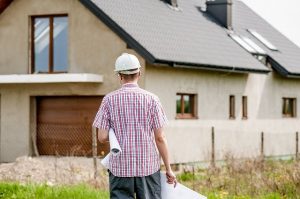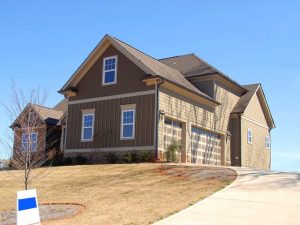Buying a home is an important financial decision, and many people are constantly looking to buy their own. Some of them rush this decision without considering all the different options that exist to acquire a place to live.
 Among these options, the ideal alternative for those who are looking for a more economical way to acquire a property, have time to wait, and are in no rush to deliver it, is to buy a home in plans.
Among these options, the ideal alternative for those who are looking for a more economical way to acquire a property, have time to wait, and are in no rush to deliver it, is to buy a home in plans.
This modality consists of acquiring the house through the separation with an initial fee when it is still in plans equivalent to being in a project, that is, before construction begins. The project is presented through plans and graphic instruments that show the client what the house will be like. It should be emphasized that it has all the previous studies and requirements, among others, such as authorizations and approved licenses.
Buying in plans offers multiple advantages; we can mention some of them:
Payment Facilities
It offers facilities for the initial fee, in a short or long payment period granted by the bank in coordination with the real estate company. Many companies offer facilities to pay the initial in monthly installments. The cost of the installment usually amounts to 10% of the value of the house. It could vary up to 5% of the value of the house, depending on the bank.
Modificable Design
Being a purchase in plans, you can choose to make changes that best suit your needs, taste and economic capacity, associated with distributions and finishes within the stipulated area. This advantage is special since it is not always possible to find a design that completely adapts to your requirements, and it is preferable to make changes to the plans than to want to make them on a building.
Selection Of Finishes
When the purchase in plans is made, you can choose finishes for each of the spaces that you consider necessary (within limits established in the contract with the construction company).
Guarantee And Quality Of The Work
By purchasing on plans, the customer has the advantage of monitoring the construction process. This guarantees knowing in detail what you are buying, with what and how they are building it, thus having a lower probability of finding hidden defects. It is worth mentioning that you can always ask the real estate company about its progress.
More Economic Option
The main benefit of acquiring plans is the economic one. In general, it is estimated that savings under this modality are between 5% and 10% lower than when buying a finished property according to the market. As a project progresses, the price increases depending on the stages or number of units offered. Purchasing at the blueprint stage is ideal for those considering low-cost, long-term investing.
Valorization In Time
The commercial value of the property increases over time. In this way, a profit is obtained for the said increase, which supposes an additional investment in time that could also be a profitable business option if intended to sell the home or be used as a mortgage loan.…
 A house is a difficult financial decision to make mainly due to the large financial investment that this implies in the life of a person. In deciding which way to invest money the most, a question arises that we have all asked ourselves: what is better: buying or building a house? And the answer is that it is relative and that relativity depends on a great variety of elements that you must decide according to what you expect from your ideal home.
A house is a difficult financial decision to make mainly due to the large financial investment that this implies in the life of a person. In deciding which way to invest money the most, a question arises that we have all asked ourselves: what is better: buying or building a house? And the answer is that it is relative and that relativity depends on a great variety of elements that you must decide according to what you expect from your ideal home.
 Programmatic advertising to improve the relationship with potential buyers
Programmatic advertising to improve the relationship with potential buyers Virtual tours to improve the user experience
Virtual tours to improve the user experience